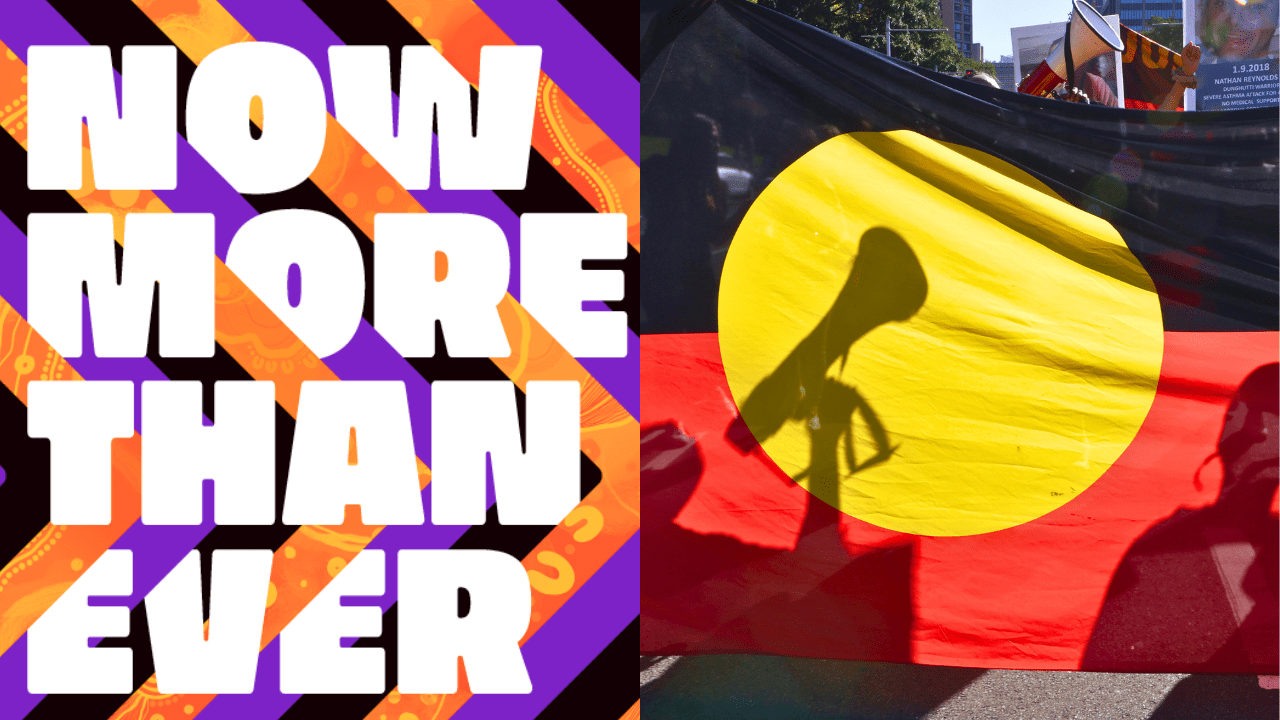

As May 27 approaches, people of all backgrounds and communities across Australia are preparing for National Reconciliation Week. This year, the theme for the week is a call to action to continue the fight for Indigenous issues, “Now More Than Ever”.
There are tonnes of different events happening, and ways to get involved in the celebrations of Indigenous history and culture — but what does this year’s Reconciliation Week theme mean? And how did the weeklong event first start?
Here’s everything you need to know about 2024’s National Reconciliation Week.
What does ‘Now More Than Ever’ mean?
This year’s Reconciliation Week theme is in response to last year’s unsuccessful Voice To Parliament Referendum. It aims to be an encouragement that when reconciliation seems furthest away is when it is most important to keep fighting.
“Now More Than Ever is a reminder to all of us that no matter what, the fight for justice and the rights of Aboriginal and Torres Strait Islander people will —and must —continue,” reads a statement from Reconciliation Australia — the founders of the event.

Last year Australia took part in the Voice To Parliament Referendum, which sought to have an independent Indigenous Voice enshrined in the Constitution that could advise the federal government on Indigenous issues.
The referendum failed, with more than 60% of the population voting against it.

This result was devastating to the First Nations and Torres Strait Islander peoples of Australia, and had a significant toll on the community’s mental health. That is what this year’s theme was specifically chosen to address.
“Now more than ever, we need to tackle the unfinished business of reconciliation. We know that the 6.2 million Australians who voted YES are committed to better outcomes for First Naations people, and are with us,” continued the statement.
Reconciliation Australia also referenced the Uluru Statement from the Heart in its explainer of the theme, which had the three goals of Voice, treaty, and truth-telling.

“Now more than ever, the work continues. In treaty-making, in truth-telling, in understanding our history, in education, and in tackling racism. We need connection. We need respect. We need action. And we need change,” stated Reconciliation Australia.
Now more than ever, we need reconciliation.”
When and what is Reconciliation Week?
National Reconciliation Week goes from May 27 to June 3, every year. These dates were chosen for their historical significance to Indigenous rights and reconciliation in Australia.
On May 27 in 1967, Australia passed a referendum that gave Indigenous Australians the right to vote.
And June 3 commemorates Mabo Day, as well as the end of the week. Mabo Day marks the anniversary of the High Court’s decision in the 1992 Mabo Land Rights case, which overturned the concept of “terra nullius” and set a legal precedent for the recognition of Indigenous land ownership. AKA the Native Title Act.

The day before it begins (May 26) is National Sorry Day, which remembers and acknowledges the historical mistreatment of Indigenous Australians, and in particular, the atrocities of The Stolen Generation.
When did Reconciliation Week first begin?
The first official National Reconciliation Week in Australia was in 1996, however, the celebration of the week *technically* first began in 1993.
In 1993 these dates commemorated the “Week of Prayer for Reconciliation”, which then turned into National Reconciliation Week in 1996.
How to get involved in Reconciliation Week
Throughout its history, there have been plenty of ways that people have commemorated National Reconciliation Week.
Maybe in school you might have done something like a cupcake stall to raise money for an Indigenous charity. Or perhaps you’ve seen exhibitions or performances put on in your community.

Reconciliation Australia recommends getting involved in the following ways:
Campaigns
If the Voice To Parliament campaigns taught us anything, it’s that the fight for Indigenous justice needs as many hands on deck as it can get. So why not join a campaign locally — or online! — recommended by Reconciliation Australia that lends support to advancing reconciliation.
Some of the suggested campaigns include:
Events
Whether it’s an exhibition of art by prominent Indigenous artists, or a survey on what your community can do to further the cause for Indigenous reconciliation, taking part in events is a fun and informative way to commemorate National Reconciliation Week.

And you don’t even have to look too hard to find options! Reconciliation Australia has put together a helpful calendar here that displays all the different events you could attend between May 27 and June 3.
Starting a RAP
Starting a Reconciliation Action Plan (RAP) is a great way for an organisation to take its first steps toward creating meaningful action to advance reconciliation. You can use these in schools, businesses of all sizes, and community groups.
For more information on how to start a RAP in your community, check here.
The post Reconciliation Week 2024’s Theme Is ‘Now More Than Ever’ — Here’s What It Means appeared first on PEDESTRIAN.TV .







